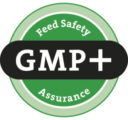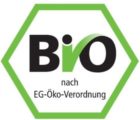We also have the GMP+FSA certification, highly valued internationally in the feed sector, a very demanding quality and food safety system, based on complete risk analyses (HACCP), in which food safety is ensured throughout the supply chain.
We base our food safety system mainly on prevention, carrying out regular controls following the established protocols, such as:
- Supplier control
It is critical to ensure that food suppliers meet established quality and safety standards. This involves carefully evaluating and selecting suppliers, verifying their certifications, and conducting regular audits to ensure they are upholding proper food safety practices. -
Control and supervision of product storage
Proper food storage is essential to prevent contamination and spoilage. This implies establishing adequate temperature, humidity and time conditions for each type of food, as well as maintaining an adequate rotation of the products to avoid expiration. -
Traceability
Traceability refers to the ability to trace the movement of a food product throughout the entire supply chain, from its origin to its destination. This involves keeping detailed records to identify suppliers, product batches, and distribution destinations. -
Risk analysis and prevention
Hazard Analysis and Critical Control Points (HACCP) is a preventive system that identifies, evaluates, and controls significant hazards for food safety. It consists of identifying the critical control points in the food production process and establishing preventive measures to guarantee safety. -
Sampling and Complete Analytics
Sampling and analysis are an integral part of a food safety system. Regular tests and analyses are carried out to detect the presence of contaminants, harmful microorganisms, or other potential health risks in food. -
Continuous staff training
It is essential to provide regular education and training to all personnel involved in food handling and production. This ensures that they are aware of the best food safety practices, hygiene protocols and current regulations. - Management of nonconformities
Non-conformity management involves identifying and addressing any deviations or non-compliance with food safety standards. Procedures are established to investigate and correct nonconformities, and corrective measures are implemented to prevent recurrence. -
Procedures and management of early warnings and withdrawal
Procedures are established for the management of early warnings and withdrawal of products in case of identifying a food safety problem. This means quickly communicating with health authorities, customers, and consumers to take the necessary action and remove the affected products from the market. -
Continuous improvement
Continuous improvement is a key principle in food safety. Regular review of existing processes and procedures is encouraged, as well as implementation of improvements based on feedback, audit results and advances in food safety practices. -
Control and supervision of the transport of products
Food transportation is also a critical factor in keeping it safe. Protocols must be established to guarantee that food is transported in adequate conditions of temperature, hygiene, and protection against contamination throughout the distribution process.







 “Intema import-export S.L ha sido beneficiaria del Fondo Europeo de Desarrollo Regional cuyo objetivo es mejorar la competitividad de las Pymes y gracias al cual ha puesto en marcha un Plan de Marketing Digital Internacional con el objetivo de mejorar su posicionamiento online en mercados exteriores durante el año 2023. Para ello ha contado con el apoyo del Programa XPANDE DIGITAL de la Cámara de Comercio de Tortosa. Una manera de hacer Europa.”
“Intema import-export S.L ha sido beneficiaria del Fondo Europeo de Desarrollo Regional cuyo objetivo es mejorar la competitividad de las Pymes y gracias al cual ha puesto en marcha un Plan de Marketing Digital Internacional con el objetivo de mejorar su posicionamiento online en mercados exteriores durante el año 2023. Para ello ha contado con el apoyo del Programa XPANDE DIGITAL de la Cámara de Comercio de Tortosa. Una manera de hacer Europa.”
